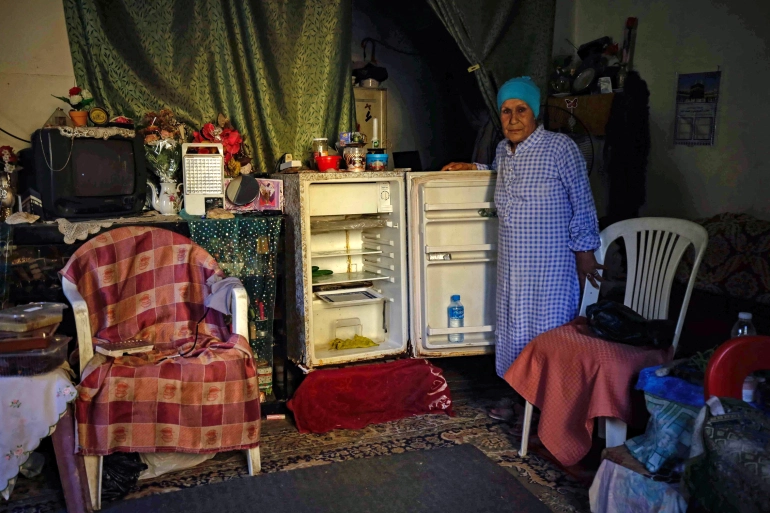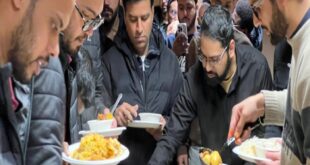
Aid groups are struggling to feed thousands of vulnerable families in Lebanon amid highest food inflation in the world.
For the past decade, Sawa For Development and Aid has been delivering evening iftar meals for about 4,000 families breaking the daily fast during Ramadan in Lebanon’s eastern Bekaa Valley.
But this year the NGO’s busy kitchen has had to work non-stop, cooking for at least 7,000 Syrian refugee and Lebanese families.
“This year is a bit different,” Doha Adi, the NGO’s programmes manager, told Al Jazeera with a sigh.
“We’re providing hot meals for areas far from our kitchen [in the Bekaa Valley], delivering food parcels to homes in Beirut and Tripoli – we never thought we’d ever have to intervene in Beirut,” she said.
But it is not only Syrian refugees and vulnerable Lebanese across the country asking Sawa for Development and Aid for meals this Ramadan.
“We’re being contacted by municipalities in the Bekaa Governorate to support Lebanese households this year,” Adi said.
“They’re sending us lists of vulnerable households, asking if we can support them.”
The Lebanese pound has lost about 90 percent of its value since late 2019 and continues to slump.
Over the past 18 months, more than half of Lebanon’s population has fallen into poverty.
On top of that, food prices have skyrocketed – even for the most modest household staples.
Lebanon imports most of its goods, including food, and food inflation in Lebanon is the highest in the world, according to the United Nations – as food prices have soared above 400 percent.
‘What can you get with that?’
Calculations by Nasser Yassin, professor of policy and planning at the American University of Beirut, have revealed that a common fattoush salad – comprised of basic ingredients like lettuce, tomatoes, radish and parsley – is 210 percent more expensive to prepare this year.
Yassin has dismissed tabloid speculation that Lebanon could witness a famine, but is still alarmed by the country’s food security crisis and said Lebanese households are likely to shift to a less nutritious and diverse diet, as many of the country’s 1.5 million Syrian refugees have been forced to do.
“Instead of eating three times [a day], they would eat twice, but mostly they would go for cheaper options, so more carbs, less meat and proteins,” Yassin said.

SOURCE: AL JAZEERA




 World Opinions Débats De Société, Questions, Opinions et Tribunes.. La Voix Des Sans-Voix | Alternative Média
World Opinions Débats De Société, Questions, Opinions et Tribunes.. La Voix Des Sans-Voix | Alternative Média




